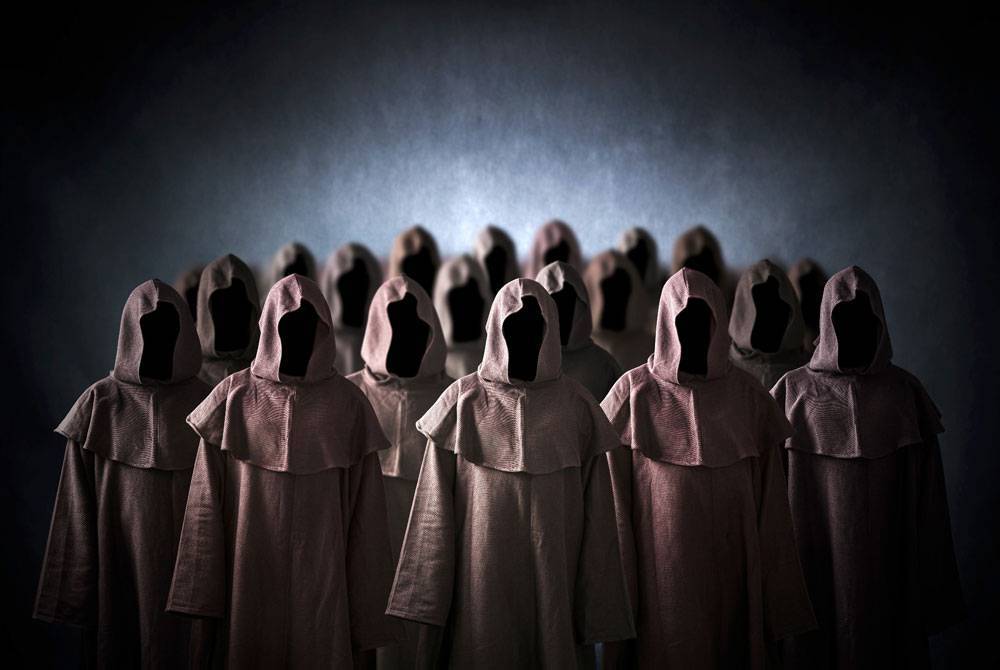Explainer: A look back at Malaysia's deviant teachings
Beyond GISBH, Malaysia has a history of sects like Ayah Pin, Tuhan Harun and others that have disrupted societal order and Islamic teachings.

SHAH ALAM - Malaysia, a multi-religious society known for its religious harmony, especially within its Muslim majority, has nonetheless faced challenges from deviant teachings that conflict with mainstream Islamic beliefs.
The recent controversy surrounding Global Ikhwan Services and Business Holdings (GISBH), linked to the banned Al-Arqam sect, has once again brought the issue of deviant teachings to the forefront.
Beyond GISBH, Malaysia has a history of sects like Ayah Pin, Tuhan Harun and others that have disrupted societal order and Islamic teachings. Here, we explore the most notorious deviant teachings that have emerged in the country.
Global Ikhwan Services and Business Holdings (GISBH, formerly known as Al-Arqam)
The latest in the spotlight, GISBH, formerly known as Al-Arqam, has recently come under scrutiny for allegations of child abuse, neglect, and the propagation of deviant teachings linked to the banned Al-Arqam sect.
Raids on alleged GISBH-run charity homes led to the rescue of over 400 children, amid reports of sexual abuse and indoctrination.
Al-Arqam, founded by Ashaari Muhammad in 1968, was banned in 1994 for promoting heretical Islamic practices, including claims that Ashaari was the Imam Mahdi.
Although GISB denies continuing Al-Arqam's teachings, authorities remain cautious due to the sect's enduring influence.
Despite Al-Arqam's disbandment and the detention of its members under the Internal Security Act, its legacy persists through groups like GISBH, illustrating how deviant teachings can endure despite legal efforts to suppress them.
Ayah Pin
Ayah Pin, also known as Ariffin Muhammad, claimed to be the reincarnation of God and established the "Sky Kingdom" cult in Terengganu. His teachings were a bizarre blend of Islam and other religions, which attracted a loyal following.
The group constructed giant teapots and vases, symbolising their beliefs in divine unity.
Authorities demolished their structures in 2005 and Ayah Pin fled, eventually passing away in 2016.
His teachings were declared heretical, but his influence persists in some pockets.
Tuhan Harun
Tuhan Harun or Harun Mat Saat, claimed divinity and founded a cult in Pahang.
His followers were taught to revere him as a God, and the group was involved in multiple criminal activities, including the murder of a senior religious officer.
Tuhan Harun’s teachings were rooted in extreme deviation from Islamic doctrine, promoting a cult-like worship of its leader.
He was arrested in 2013 and died in custody in 2016.
Jemaah Islamiah (JI)
JI is a notorious extremist group with ties to Al-Qaeda and is known for its violent jihadist ideology.
Though primarily based in Indonesia, the group has established cells in Malaysia.
JI's objective is to establish an Islamic caliphate in Southeast Asia, and it has been involved in terror attacks, most notably the 2002 Bali bombings.
Malaysian authorities have actively worked to dismantle JI networks in the country, considering the group a severe threat to national security.
Millah Abraham
Millah Abraham is a relatively recent deviant movement in Malaysia, originating from Indonesia.
The group teaches a radical interpretation of Islamic prophecy, claiming that the final prophet was not Muhammad, but Abraham.
This heretical stance contradicts core Islamic beliefs and has led to the group being declared deviant.
Malaysian authorities have been monitoring and taking action against the group to prevent its spread.
Asmaul Husna
The Asmaul Husna sect promoted the idea that specific individuals, deemed "chosen," could invoke divine names (asmaul husna) to gain supernatural powers.
These teachings are not rooted in mainstream Islamic practices and were declared deviant by Islamic scholars.
The sect garnered attention in the 1980s but was quickly suppressed by religious authorities in Malaysia.
Other Deviant Teachings
Malaysia has also dealt with other deviant groups, including the Haji Kahar movement, which claimed prophethood, Abdul Kahar Ahmad claimed to be ‘Malay’s Prophet’ and Tariqat Naqsyabandiah Kadirun Yahya, a group promoting esoteric practices inconsistent with traditional Islamic beliefs.
These groups, while smaller in number, represent the ongoing challenges Malaysian authorities face in preserving the integrity of Islamic teachings.
Deviant teachings in Malaysia have taken various forms, from cult-like worship of leaders to radical reinterpretations of Islamic doctrines.
While authorities have consistently worked to suppress these movements, their persistence shows the complexity of balancing religious freedom with safeguarding societal and religious harmony.











